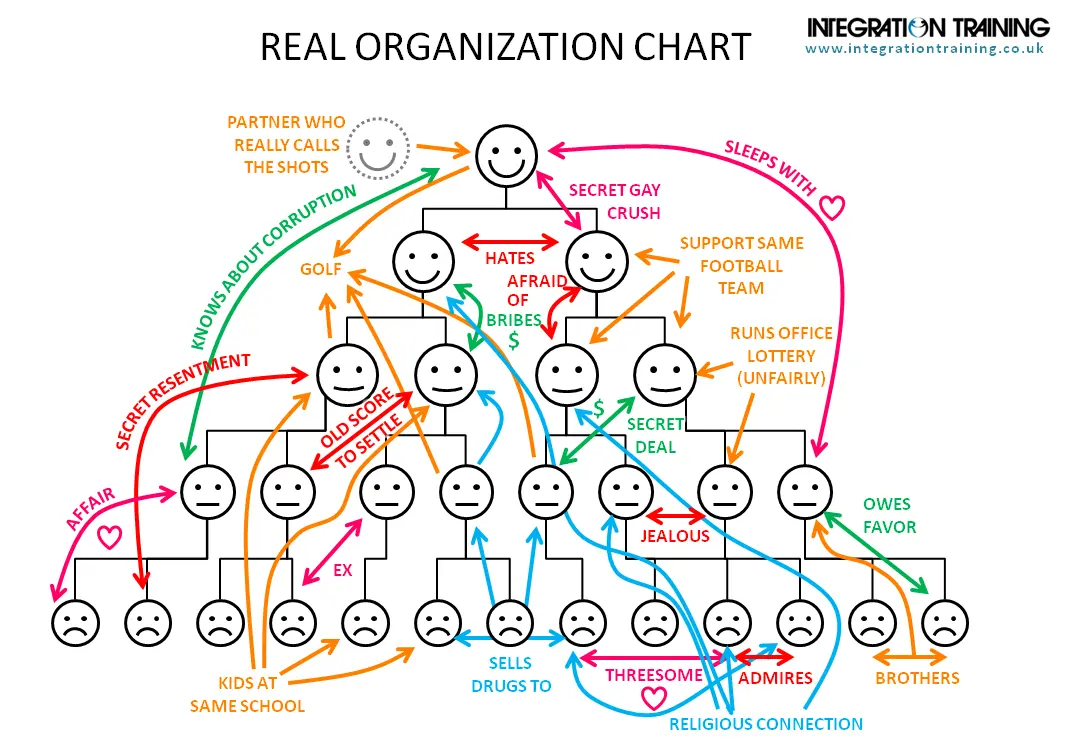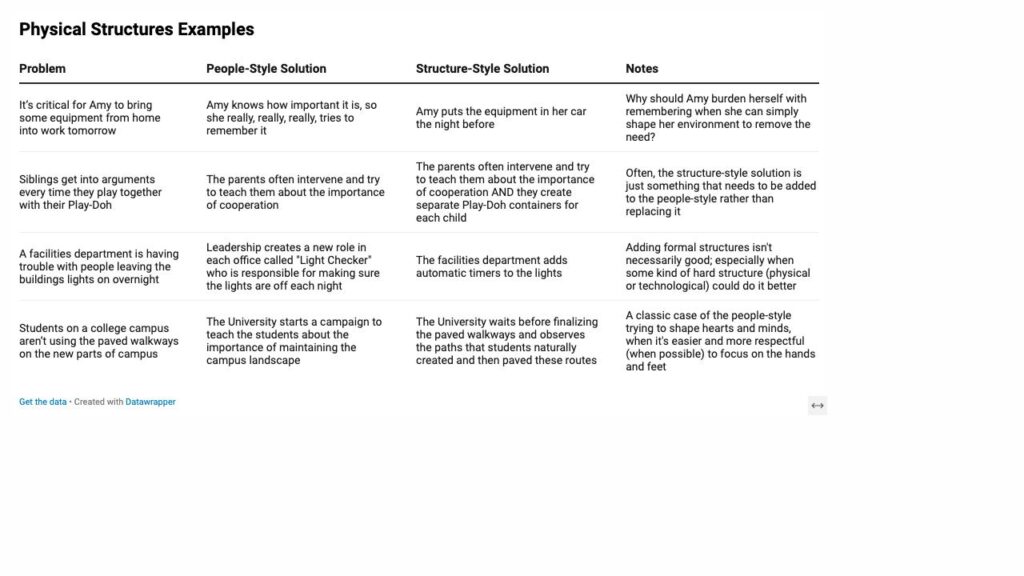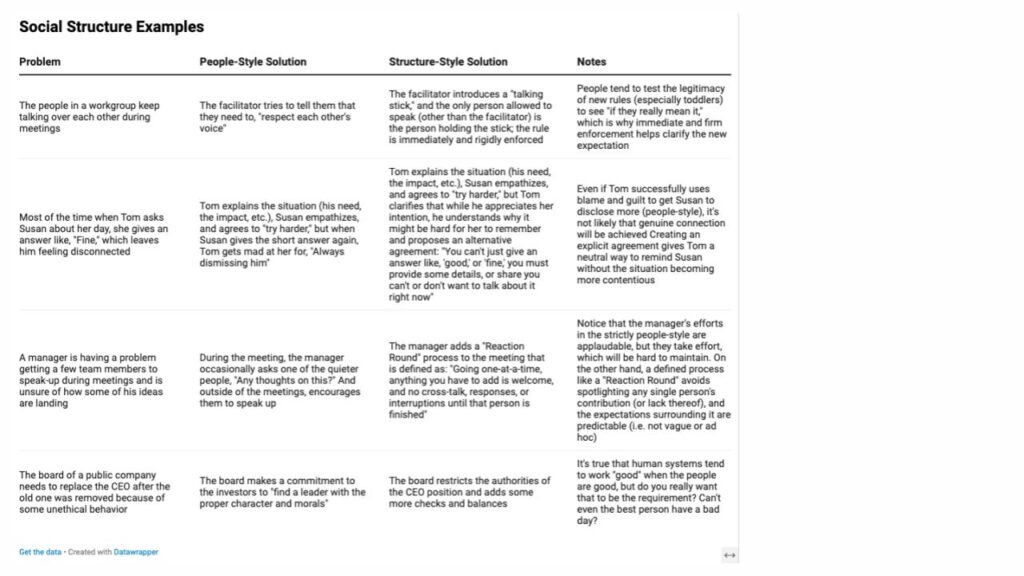Don’t Change People When You Can Change Structures
Where There is a Lack of Structure There is Often an Abundance of Blame
Where There is a Lack of Structure There is Often an Abundance of Blame

In 1977 at Stanford University, 18 pairs of students were invited to participate in a simulated quiz game, where they were randomly assigned roles of game show hosts, contestants, or audience members.
After the quiz, all participants, including observers, were asked to rate the general knowledge of the hosts and contestants, and the results showed that participants consistently rated the host as the most intelligent, despite knowing the hosts were randomly assigned and wrote the questions themselves.
This study established, “The Fundamental Attribution Error,” theory, which suggests we have a strong unconscious bias towards attributing people’s behavior to personal traits rather than situational factors.1
One of the nastiest impacts of this blindspot is that human beings often try to improve systems and situations by improving people (i.e. “people-style” solutions), rather than improve the environments and structures around them (i.e. “structure-style” solutions).
Here are some examples:

Now, I imagine these examples of using physical structures to solve problems are relatable, but if properly legitimized, social structures (e.g. explicit rules, expectations, or agreements) can be equally powerful. Here are some examples:

Where there is a lack of structure there is often an abundance of blame. And we have a tendency to blame people when fixing the structures around them is often easier, more respectful, and more effective. Of course, it often helps to offer explanations, or attempt to influence others’ thoughts or opinions, but usually only in conjunction with exploring what (if any) structural changes can be made.
1 Ross, L. (1977). “The Intuitive Psychologist And His Shortcomings: Distortions in the Attribution Process.” Advances in Experimental Social Psychology, vol. 10, pp. 173-220.
To learn more about self-management, join a community of pioneers and check out our e-courses → Self-Management Accelerator
